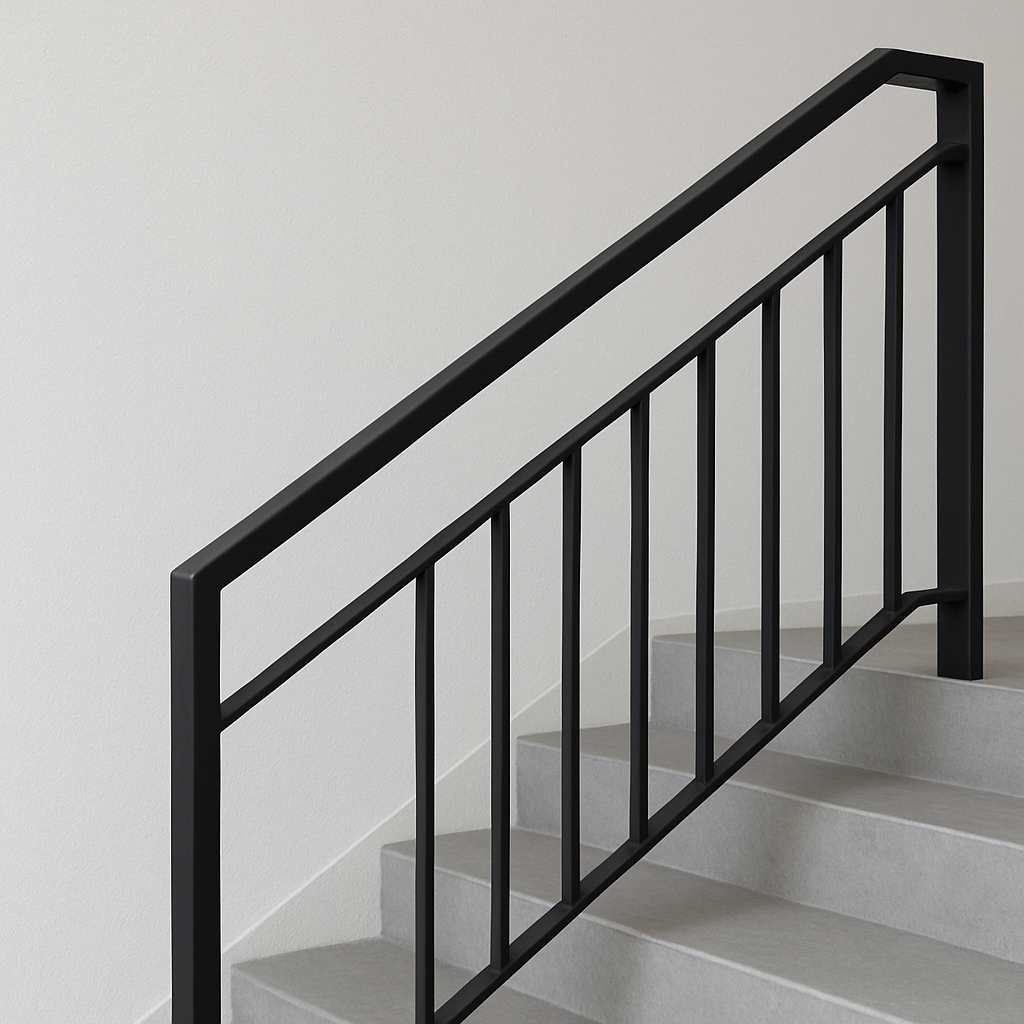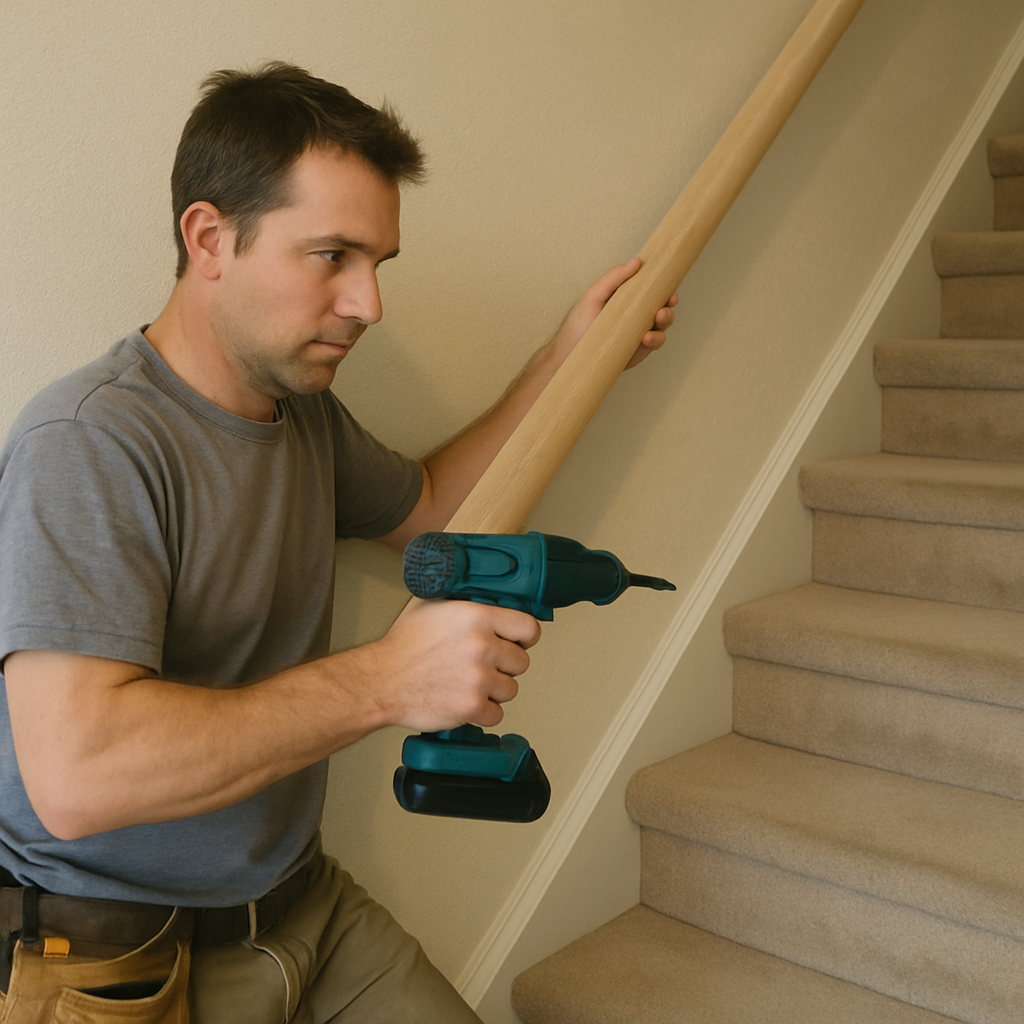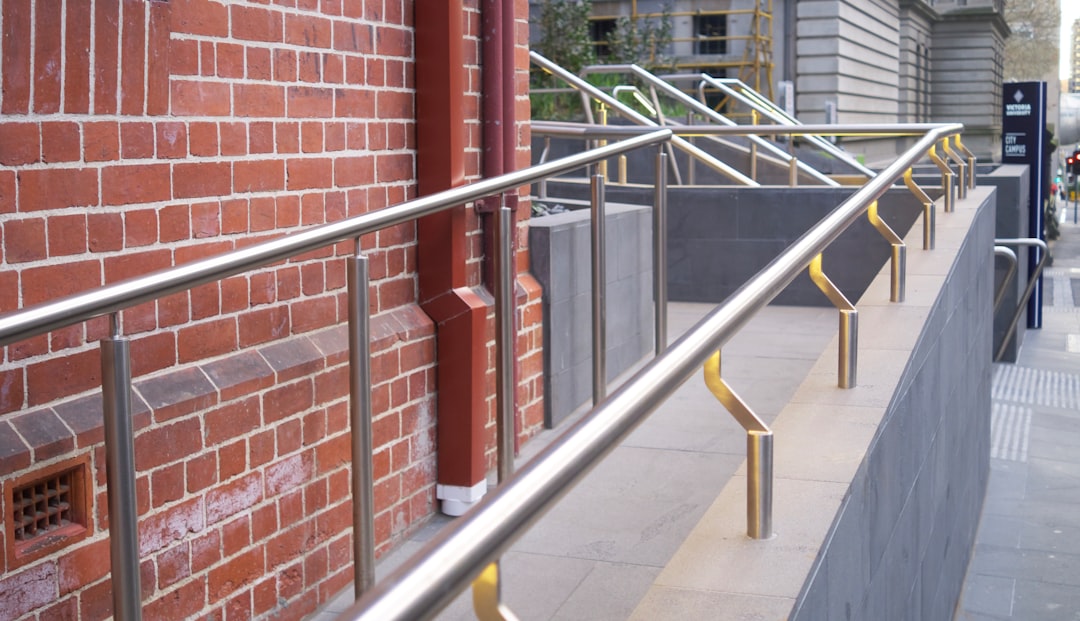 Service Hotline:13510328459
Service Hotline:13510328459
 205-206, 2nd Floor, Building 2, Xiazao Village Industrial Zone, Gaofeng Community, Dalang Street, Longhua District, Shenzhen City
205-206, 2nd Floor, Building 2, Xiazao Village Industrial Zone, Gaofeng Community, Dalang Street, Longhua District, Shenzhen City
 Service Hotline:13510328459
Service Hotline:13510328459
 205-206, 2nd Floor, Building 2, Xiazao Village Industrial Zone, Gaofeng Community, Dalang Street, Longhua District, Shenzhen City
205-206, 2nd Floor, Building 2, Xiazao Village Industrial Zone, Gaofeng Community, Dalang Street, Longhua District, Shenzhen City
Time:2025-09-18 Preview:
When it comes to enhancing the safety and aesthetic appeal of a building, handrails play a crucial role. They not only provide essential support and stability but also contribute significantly to the overall design of a space. In this article, we'll delve into handrail project site installation photos, offering inspiration and insights into the process of handrail installation.
Handrails are more than just functional elements in architecture; they are vital for ensuring safety in both residential and commercial spaces. Whether it's in a home, office building, or public venue, handrails offer necessary support to prevent accidents and falls. Moreover, they can enhance the visual appeal of staircases and walkways.
Handrail designs are diverse, ranging from sleek and modern to classic and ornate. The design you choose can significantly impact the look and feel of your space. Here are a few popular handrail design ideas:
Modern minimalist handrails are characterized by clean lines and a simple, elegant look. They often use materials like stainless steel or glass to create a contemporary feel. This design is perfect for those looking to achieve a sleek, uncluttered look.
Wooden handrails bring warmth and a touch of tradition to any space. They are versatile and can be crafted in various styles, from simple straight lines to intricate carvings. This type of handrail is ideal for homes or buildings with a classic or rustic aesthetic.
For a more edgy and urban look, consider industrial chic handrails. These often incorporate materials like black iron or metal piping. Industrial designs can add a unique character and are particularly popular in loft apartments and modern office spaces.

Viewing handrail project site installation photos can provide valuable insights into how different designs come to life. These photos showcase the meticulous process of installing handrails and the attention to detail required to ensure both functionality and style.
The installation of handrails involves several critical steps to ensure they are secure and meet safety standards. Below is an overview of the typical process:
The first step involves careful planning and design. This includes selecting the appropriate materials and design that complement the building's architecture. Measurements are taken to ensure the handrails fit perfectly and meet safety regulations.
Once the design is finalized, the chosen materials are prepared. This may involve cutting, shaping, and finishing the materials to match the design specifications.
The installation phase is where the handrails are securely attached to the walls, floors, or staircases. This step requires precision and expertise to ensure the handrails are stable and safe for use.
After installation, finishing touches are applied. This may include painting, staining, or polishing to enhance the appearance of the handrails.

While some may consider installing handrails themselves, hiring professionals offers several advantages:
Professional installers have the expertise and experience to ensure handrails are installed correctly and safely. They are familiar with local building codes and regulations, which helps prevent potential issues.
Professionals have access to high-quality materials and tools, ensuring that the installation is precise and durable. This attention to detail results in handrails that not only look great but also stand the test of time.
Hiring professionals can save time and potentially reduce costs in the long run. They can complete the installation more quickly and efficiently, minimizing disruptions to your daily routine.

When selecting a handrail design, consider the following factors to ensure it meets your needs and preferences:
Ensure the handrail design provides adequate support and safety for its intended use. Consider the needs of those who will be using the handrails, such as children or the elderly.
Choose a design that complements the overall style of your space. Whether you prefer a modern look or something more traditional, the handrail should enhance the visual appeal of the area.
Consider the durability and maintenance requirements of different materials. For example, metal handrails are typically more durable and require less maintenance than wooden ones.
Handrails are an essential component of any building, providing safety and contributing to the overall design. By exploring handrail design ideas and reviewing handrail project site installation photos, you can find inspiration for your own space. Whether you opt for a modern, classic, or industrial design, professional installation ensures the handrails are both functional and aesthetically pleasing.
Incorporating handrails into your building or renovation project can elevate the space's safety and style. So, take the time to explore different designs and consult with professionals to achieve the best results for your handrail project.
